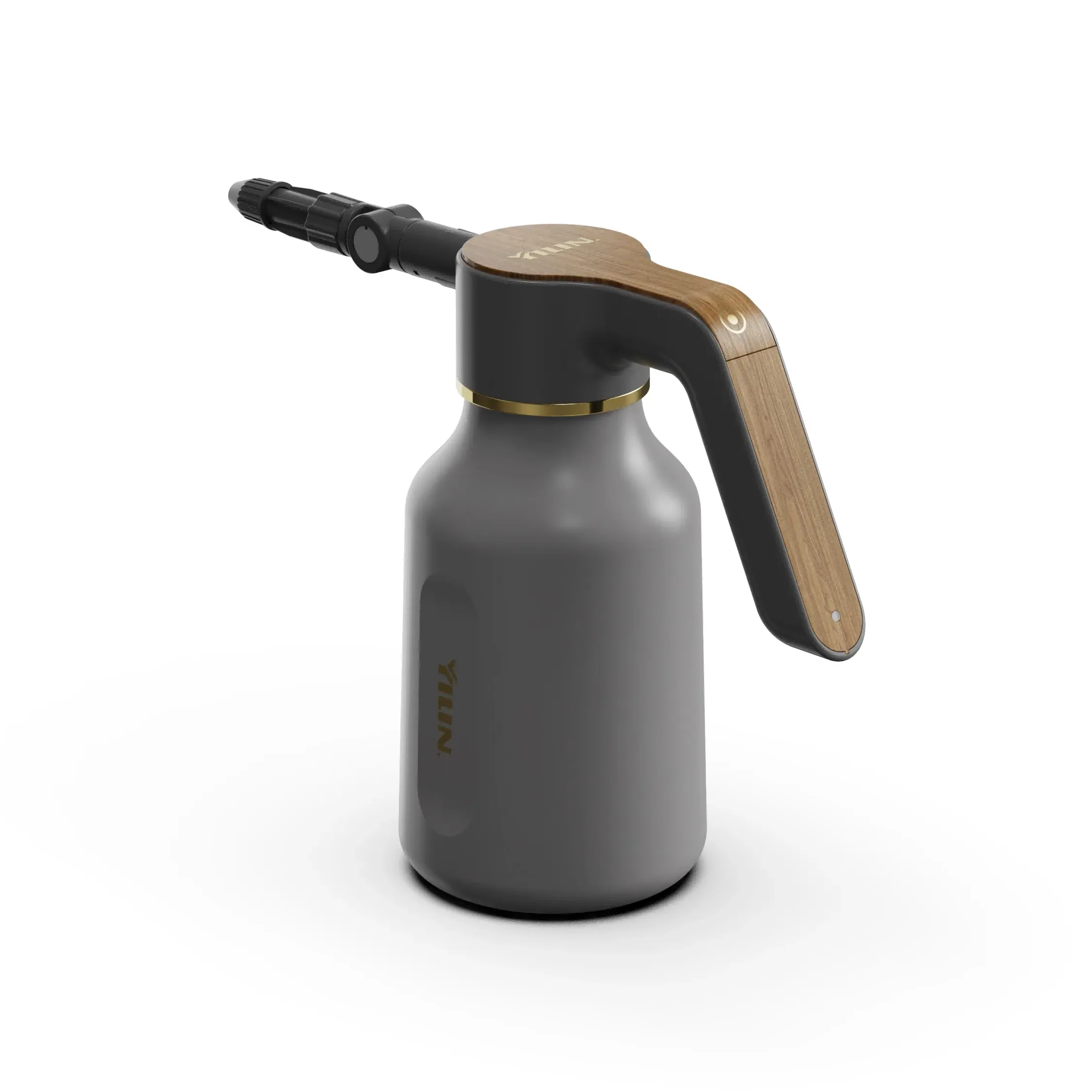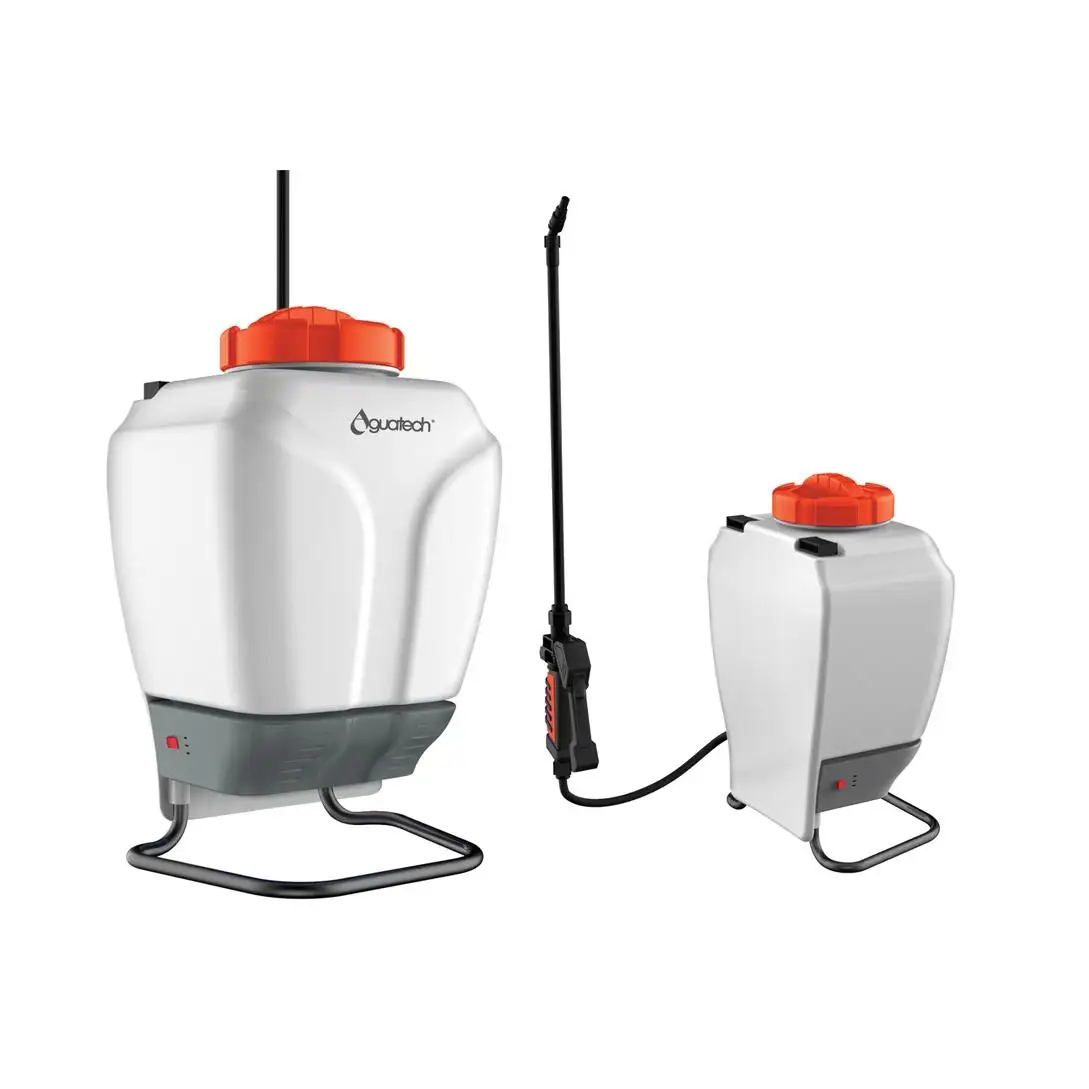Understanding the Essential Role of Garden Sprayers in Modern Plant Care
A garden sprayer is a versatile tool that has revolutionized the way we care for our plants and maintain our outdoor spaces. These efficient devices allow gardeners, both amateur and professional, to distribute water, fertilizers, pesticides, and other solutions evenly across their gardens with minimal effort. By combining precise application control with ergonomic design, garden sprayers have become indispensable tools for anyone serious about plant care and garden maintenance.
Whether you're tending to a small backyard garden or managing extensive landscaping projects, a garden sprayer can significantly streamline your plant care routine. These tools come in various sizes and designs, each engineered to meet specific gardening needs while ensuring optimal distribution of solutions. The technology behind modern garden sprayers has evolved to offer features that make plant care more efficient and environmentally conscious.

Types of Garden Sprayers for Different Applications
Manual Pump Sprayers
Manual pump sprayers are the most common and economical option for home gardeners. These sprayers require users to build pressure by pumping a handle before spraying. They typically range from 1 to 3 gallons in capacity, making them perfect for small to medium-sized gardens. The manual pumping mechanism allows for complete control over pressure and spray patterns, ideal for precise application of fertilizers or pest control solutions.
One of the key advantages of manual pump sprayers is their simplicity and reliability. With fewer mechanical parts than their powered counterparts, they require minimal maintenance and are less prone to breakdowns. They're also lightweight and easy to maneuver around delicate plants, making them suitable for detailed work in vegetable gardens or flower beds.
Battery-Powered Sprayers
Battery-powered garden sprayers represent the next level in spraying technology. These units eliminate the need for manual pumping, providing consistent pressure throughout the application process. Most models can run for several hours on a single charge, making them excellent for larger properties or commercial use. The constant pressure ensures uniform coverage and reduces operator fatigue significantly.
Modern battery-powered sprayers often come with additional features such as adjustable pressure settings, multiple nozzle options, and extended spray wands. These features allow users to customize their spraying experience based on specific needs, whether it's reaching high branches or applying fine mists to delicate seedlings.
Essential Features and Components
Pressure Control Systems
A quality garden sprayer should offer reliable pressure control mechanisms. This feature is crucial for maintaining consistent spray patterns and ensuring proper coverage. Premium models often include pressure gauges and adjustable settings that allow users to switch between different spraying modes. The ability to control pressure helps prevent plant damage and ensures optimal solution delivery.
Advanced pressure control systems also incorporate safety features such as pressure release valves and locks. These components protect both the user and the equipment from potential accidents or damage due to over-pressurization. Understanding and utilizing these pressure control features is key to achieving professional-level results in your gardening projects.
Nozzle Variations and Applications
Garden sprayers typically come with multiple nozzle options, each designed for specific applications. Fan nozzles provide broad coverage for general spraying, while cone nozzles create a focused spray pattern ideal for spot treatment. Adjustable nozzles allow users to switch between different spray patterns without changing attachments, offering maximum versatility during use.
The material quality of nozzles is equally important as their design. High-quality nozzles made from brass or stainless steel offer superior durability and resistance to chemical corrosion. They maintain their spray patterns longer and can handle abrasive materials without significant wear, making them a worthy investment for serious gardeners.
Maintenance and Care Guidelines
Cleaning and Storage Procedures
Proper cleaning of your garden sprayer after each use is essential for maintaining its performance and longevity. This involves thoroughly rinsing the tank, hoses, and nozzles with clean water to remove any chemical residues. For sprayers used with pesticides or harsh chemicals, a more thorough cleaning process using appropriate cleaning solutions may be necessary.
Storage procedures are equally crucial for preserving your sprayer's functionality. Store the unit in a cool, dry place away from direct sunlight. Remove batteries from powered units during long-term storage, and ensure all parts are completely dry to prevent corrosion or mold growth. Regular inspection of seals, gaskets, and moving parts helps identify potential issues before they become serious problems.
Troubleshooting Common Issues
Even well-maintained garden sprayers may occasionally encounter problems. Common issues include loss of pressure, irregular spray patterns, or leaking connections. Many of these problems can be resolved through simple maintenance procedures such as cleaning clogged nozzles, tightening loose fittings, or replacing worn seals.
Keeping a small repair kit with common replacement parts can save time and frustration when issues arise. This might include spare nozzles, O-rings, and basic tools for disassembly and reassembly. Understanding how to diagnose and fix common problems will help ensure your garden sprayer remains a reliable tool throughout the growing season.
Frequently Asked Questions
How often should I clean my garden sprayer?
Clean your garden sprayer thoroughly after each use, especially when switching between different types of solutions. A deep cleaning with appropriate cleaning agents should be performed at least monthly during active use seasons.
What size garden sprayer do I need?
The ideal size depends on your garden area and application needs. For small home gardens, a 1-2 gallon sprayer usually suffices. Larger properties may require 3-4 gallon capacity or battery-powered models for efficiency.
Can I use the same garden sprayer for different chemicals?
While it's possible to use one sprayer for multiple solutions, it's recommended to dedicate specific sprayers for different types of applications (herbicides, fertilizers, etc.) to avoid cross-contamination and ensure plant safety.


